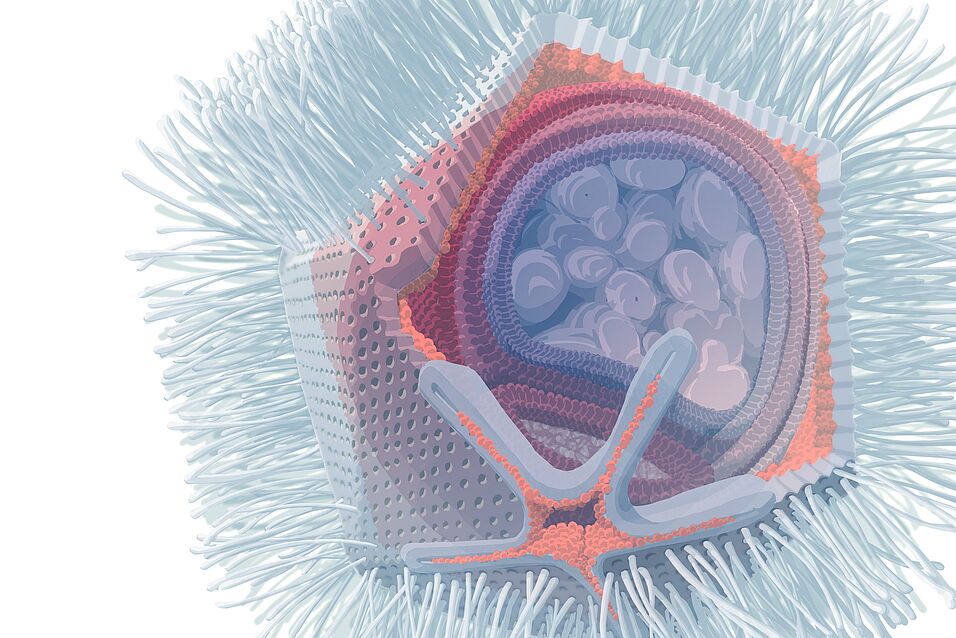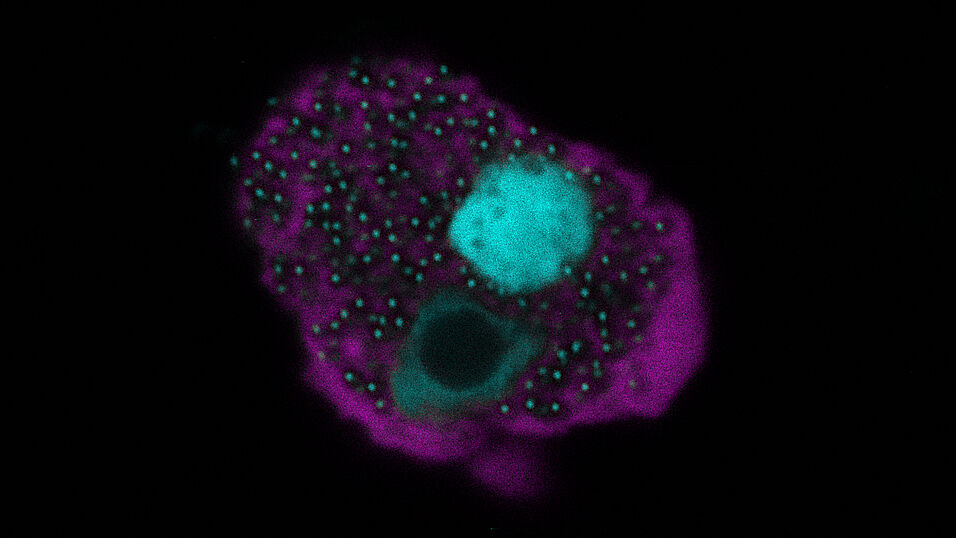Objectives: Our current knowledge about these unusual viruses is predominantly based on few isolates obtained with a very limited number of protist host species, while metagenomic data suggests a tremendous diversity of yet undiscovered viruses infecting microbial eukaryotes. The main goal is to access this untapped diversity and to make it available for in-depth experimental analyses, including studying the impact of giant viruses on complex microbial communities and ecosystem processes.
Approach: We will use targeted co-cultivation with alternative (heterotrophic) protist hosts for the isolation of new giant viruses from selected and repeatedly sampled environments. This will be complemented by targeted enrichment of heterotrophic protists and giant viruses directly from environmental samples and subsequent metagenomics and mini-metagenomics analyses. Microcosm experiments will be performed to study giant viruses and their hosts in complex microbial communities, and to assess the role of defensive symbionts in protists.
Innovation: This project combines innovative explorative avenues to discover and characterize new giant viruses with a hypothesis-driven approach to begin to understand the role of giant viruses in microbial communities and ecosystem functioning. In a research field still in its discovery phase, giant virus isolates amenable in the lab are urgently required. The adoption of protists for giant virus isolation that have not been used for this purpose before, together with the systematic sampling and targeted cultivation-independent approaches will further our understanding of the diversity, biology, host interaction, ecology and evolution of giant viruses. The microcosm experiments will for the first time provide insights into the role of giant viruses of heterotrophic protists in complex microbial communities.
Researchers involved:
The project team includes collaborators for metagenome analysis and cryo-electron tomography at the Joint Genome Institute and the ETH Zürich, respectively.


